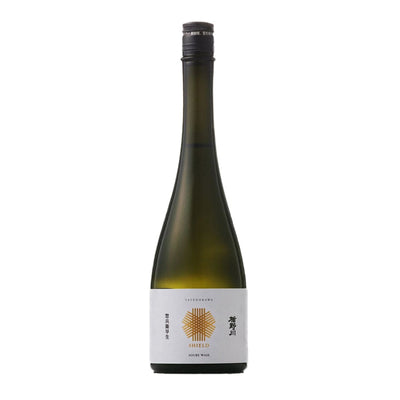Tatenokawa Sake Brewery: Advancements in Contract Farming and In-House Milling
Progress with Contract Farmers
Rice is the sole raw material for pure rice daiginjo sake. Traditionally, the sake industry has relied heavily on sake brewing associations, agricultural cooperatives (JA), and other external suppliers for rice procurement. This practice remains predominant even in the Reiwa period.
Around 15 years ago, Tatenokawa Sake Brewery began questioning this conventional approach. The brewery’s leadership pondered, "Why aren’t we procuring our own rice?" and "Isn’t the sake industry holding us back?" They were concerned about the lack of personal connection with the rice growers and the reliance on external sources for rice procurement.
External suppliers often imposed rigid requirements, such as, "Please submit the quantity needed for the next two years as soon as possible. You must purchase the submitted quantity," and "Despite your previous submission, due to various circumstances, we could only supply a smaller amount."
Faced with these issues and external pressures, Tatenokawa Sake Brewery decided that if they were to take risks, it was better to manage them internally. Thus, they embarked on a journey of contract cultivation, starting with ten local farmers and a planting area of 13 hectares using Dewasansan and Miyama Nishiki rice.
Over time, the number of contract farmers grew to 23 by 2020, and the planting area expanded to over 70 hectares. Since 2020, the brewery has adopted a policy of full-contract cultivation for Yamada Nishiki rice as well.

Throughout this process, Tatenokawa faced numerous challenges, including pressure and interference from external organizations regarding contract cultivation. Despite these difficulties, the brewery remained committed to creating mutually beneficial relationships between farmers and brewers, striving to positively impact both the agricultural and sake industries.
Aiming for All-Contract Special Cultivation Rice
Since 2017, Tatenokawa Sake Brewery has been dedicated to producing sake rice of superior quality and safety by transitioning to special cultivation levels for Dewasansan and Miyama Nishiki rice. Special cultivation involves reducing the use of pesticides and chemical fertilizers to 50% or less compared to conventional practices. Each prefecture determines the conditions for special cultivation.
Initially, the brewery engaged in numerous discussions with contract farmers to advocate for this shift. While some farmers struggled with the increased burden of providing cultivation history and potential yield reductions, resulting in a few longstanding growers opting to stop production, by 2017, only those who embraced the special cultivation approach remained. Additionally, two farmers began growing Dewasansan rice organically.

Despite many breweries highlighting rice varieties and production regions on their labels, cultivation methods rarely receive similar attention. This oversight might stem from a belief that extensive milling of sake rice renders special or organic cultivation unnecessary or from the inherent trust in the safety of Japanese agricultural products.
Perspective
Tatenokawa Sake Brewery aims to produce sake that is "as close to pure as possible," using only rice, rice malt, koji mold, yeast, and water. The brewery is committed to all-contract cultivation and striving for special cultivation levels or higher. This dedication to meticulous cultivation methods underscores their commitment to producing refined sake.
For Dewasansan, Miyama Nishiki, and Kamenoo rice, Tatenokawa achieved special cultivation levels or higher, including organic cultivation, for all quantities. Non-special cultivation rice varieties used are Hyogo Prefecture Yamada Nishiki and Okayama Prefecture Omachi. The brewery also plans to extend special cultivation rice contracts to out-of-prefecture varieties starting in 2020.
In-House Milling
Tatenokawa Sake Brewery has been conducting in-house milling since the 1990s, viewing it as "the first step in producing good sake." The brewery believes that milling is a crucial process in sake production and considers it essential to manage milling internally.
Despite the common industry practice of outsourcing milling to external contractors, Tatenokawa insists on maintaining in-house milling. This commitment is based on the belief that outsourcing milling is equivalent to outsourcing koji making or yeast starter production. While many breweries focus on rice types and brewing methods, outsourcing milling undermines credibility.

Tatenokawa oversees every aspect of the process, from rice procurement to milling, brewing, and storage. They believe that achieving refined sake quality requires meticulous attention to milling. The milling ratio, which influences a brewery’s style and direction, is a critical factor. The in-house milling process is considered the backbone of Tatenokawa, and the brewery is dedicated to continuing this practice.
Rice Milling Details
The rice purchased from contract farmers undergoes grade inspection on Tatenokawa’s premises, receiving grades such as first or second grade. The brewery tracks the quality of rice annually and by variety for each farmer, milling the rice accordingly for koji and brewing purposes. This approach minimizes variations during washing and soaking, leading to improved steamed rice and, ultimately, high-quality sake.

As of September 2019, Tatenokawa operates three milling machines with a capacity of 20 bags each, performing milling at ratios from 50% to 1%. The brewery’s in-house technology has developed the capability to mill down to 1% or single-digit ratios, with expectations for expanding the market for high-value-added sake.
















Leave a comment